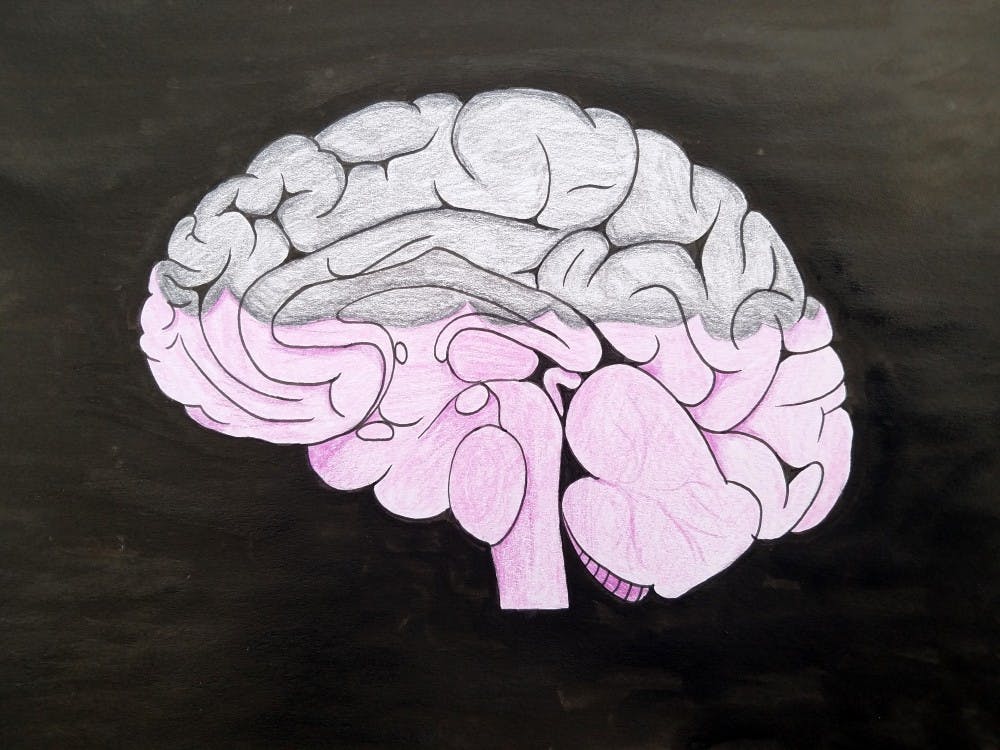As finals week fast approaches, it becomes increasingly easier to assume the world is against you. We are all under the impression that college is characterized by late, grueling nights in the library and mental breakdowns — our attitude follows suit.
Though this is the case for some, emphasizing the doom and gloom of one’s situation is not helping anyone. In fact, it could lead to long-term health defects in the future.
Recent studies conducted by BMC Public Health exhibit that a pessimistic attitude can lead to coronary heart disease in middle-aged adults. Although most college students are much younger, the attitude they have in overcoming the trials of college is likely to follow them as they age.
Pessimism doesn’t only influence the heart. Studies show that pessimism has been linked to the development of psychological disorders, chronic illnesses as well as a decrease in physical functioning.
In one study conducted by the Mayo Clinic, researchers closely observed patients for 30 years. Their findings indicate that those who were classified as optimistic experienced far fewer medical complications.
It is important to recognize that our mental state is closely linked to our physiological state. Perhaps all those years of people berating us for viewing the cup as half empty were beneficial to our health.
The same could be said for one’s motivation and success. Pessimism has been known to inhibit one’s ability to "reach for the stars." It is a limiting trait that can confine people to what they think is realistic.
Although a person’s propensity to be negative can be linked to heredity, there are methods to improving one’s attitude. One can change their perception of the world and how it works by surrounding oneself with positive influences or by choosing to consider positive outcomes, rather than the negative ones.
Psychologists also suggest that pessimists adjust their attitudes, distracting themselves from seeking negative outcomes or considering scenarios from a different perspective.
This is easier said than done, however. Pessimism can be closely linked to symptoms of depression; there are plenty of cases where college can be the root of psychological disorders. It is important to recognize this distinction.
For those who are suffering from legitimate psychological disorders, ASU’s Health Services offers students counseling that could help put their situation in perspective. College is a tough time for many, so seeking an outlet that could leave one with a more positive outlook on life could be highly beneficial.
“We (ASU’s Health Services) try to make sure that everyone in the environment knows that help is available,” Aaron Krasnow, Ph.D., associate vice president of ASU's Counseling Services and Health Services, said for an article regarding ASU’s Health Services. “For the counseling services, we not only screen those who come in, but we also provide them with a direct service in terms of psychotherapy or connecting them with other services."
Pessimism has its place, but that place is not in college. There is enough stress and anxiety as it is without the added negativity that has become so common. Unfortunately, it has become socially acceptable to have a negative attitude in college due to the inflated ideas of its difficulty.
Reach the columnist at ghirneis@asu.edu or follow @ghirneise2 on Twitter.
Editor’s note: The opinions presented in this column are the author’s and do not imply any endorsement from The State Press or its editors.
Want to join the conversation? Send an email to opiniondesk.statepress@gmail.com. Keep letters under 300 words and be sure to include your university affiliation. Anonymity will not be granted.
Like The State Press on Facebook and follow @statepress on Twitter.




